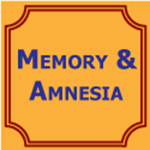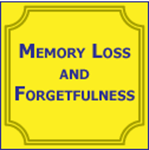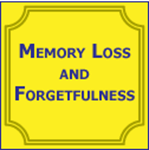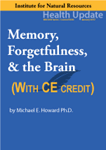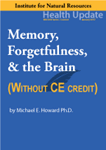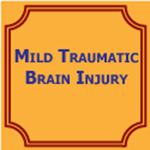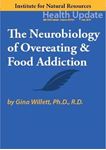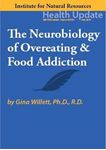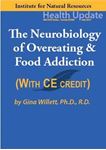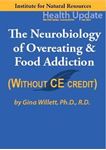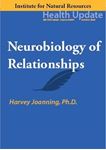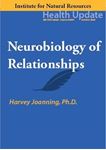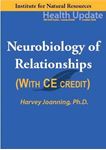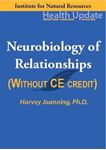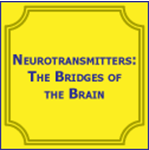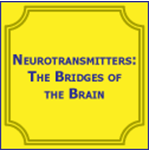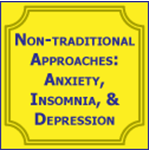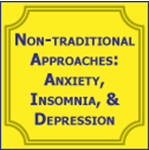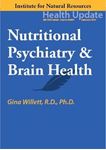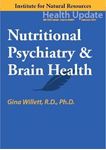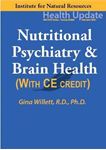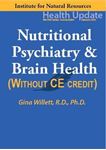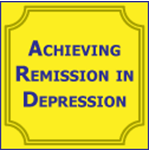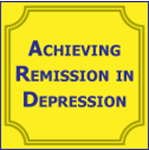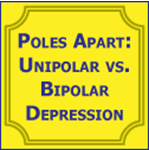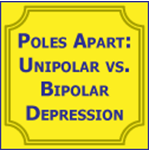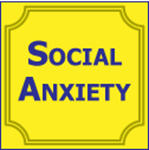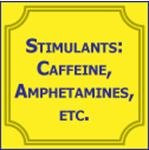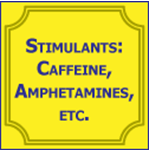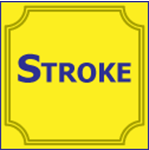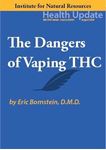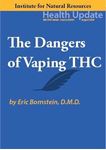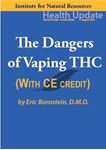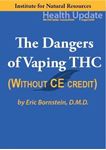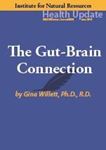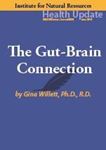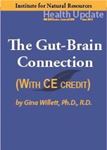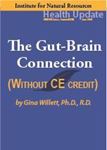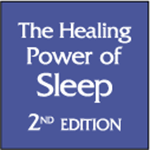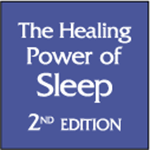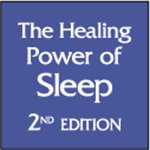You have no items in your shopping cart.
Brain Science
Meditation - Ebooklet
Defines what meditation is. Identifies the benefits of meditation and the research supporting these benefits. Reviews the history of meditation and how it came to be popular in North America. Identifies the most popular meditation techniques. Discusses how to troubleshoot challenges that may arise while meditating.
$25.00
Memory & Amnesia
Explains how memories are formed by identifying the four main processes of memory and the three stages of long-term memory. Describes the important differences between declarative/explicit memory and procedural/implicit memory. Lists the current concerns and controversies surrounding eyewitness testimony and repressed memories. Identifies the principal processes and causes of psychogenic and organic amnesias. Discusses the nature of “flashbulb” emotional memories. Identifies the difference among normal forgetting, age-associated memory impairment, and mild cognitive impairment. Lists the major memory disorders that can result in amnesia and dementia. Describes methods for improving memory.
$35.00
Memory Loss & Forgetfulness
Identifies the memory changes that take place in normal aging. Discusses how mild cognitive impairment (MCI) differs from memory loss in normal aging and from dementia. Describes the cognitive and personality changes that take place in Alzheimer’s disease. Identifies cognitive and personality changes that occur in a range of non-Alzheimer’s disease dementias.
$30.00
Memory Loss & Forgetfulness - Ebooklet
Identifies the memory changes that take place in normal aging. Discusses how mild cognitive impairment (MCI) differs from memory loss in normal aging and from dementia. Describes the cognitive and personality changes that take place in Alzheimer’s disease. Identifies cognitive and personality changes that occur in a range of non-Alzheimer’s disease dementias.
$25.00
Memory, Forgetfulness, & the Brain - Streaming Video - 6 Hours (w/Home-study exam)
Describes the essential components of forming, storing, and retrieving memories. Lists practical ways that perception, time, emotions, stress, and sleep affect memory. Discusses the differences between normal forgetting, age-related memory decline & amnesia syndromes. Lists the common lifestyle factors, medical conditions and medications that can compromise memory. Describes useful strategies to preserve memory & help patients and caregivers cope. Describes how information in this course can be utilized to improve patient care and patient outcomes. Describes, for this course, the implications for dentistry, mental health, and other health professions.
$83.00
Memory, Forgetfulness, & the Brain - Streaming Video only *NO CE - 6 hours
Describes the essential components of forming, storing, and retrieving memories. Lists practical ways that perception, time, emotions, stress, and sleep affect memory. Discusses the differences between normal forgetting, age-related memory decline & amnesia syndromes. Lists the common lifestyle factors, medical conditions and medications that can compromise memory. Describes useful strategies to preserve memory & help patients and caregivers cope. Describes how information in this course can be utilized to improve patient care and patient outcomes. Describes, for this course, the implications for dentistry, mental health, and other health professions.
$69.00
Mild Traumatic Brain Injury
Identifies the symptoms of and recovery pattern from a mild brain injury. Describes the difficulties in making the diagnosis of mild brain injury. Lists the steps in managing sports-related mild brain injuries. Describes treatment strategies for reducing the impact of mild brain injury on cognitive, emotional, behavioral, and vocational functioning. Identifies lifestyle changes that can prevent the onset of a mild brain injury.
$35.00
Neurobiology of Overeating & Food Addiction - DVD - 6 Hours (w/Home-study Exam)
Outlines the homeostatic and hedonic pathways that interact to regulate food consumption. Describes the neurobiology of overeating, altered brain structures and changes in chemical signaling that contribute to impaired food regulation. Outlines the evidence that supports the concept of food addiction, as well as the opposing view. Lists factors that contribute to overeating: genetics, epigenetics, hyperpalatable foods, gut dysbiosis, stress, maternal and early life factors, circadian disruptions, etc. Outlines potential approaches to control overeating: abstinence models, dietary modifications, cognitive therapies, neuromodulation, microbial manipulation and bariatric surgery. Describes how the information in this course can be utilized across the disciplines to improve patient care and outcomes. Describes, for this course, the implications for dentistry, mental health, nursing, pharmacy, occupational and physical therapy treatment goals, and other healthcare professions.
$83.00
Neurobiology of Overeating & Food Addiction - DVD only *NO CE - 6 hours
Outlines the homeostatic and hedonic pathways that interact to regulate food consumption. Describes the neurobiology of overeating, altered brain structures and changes in chemical signaling that contribute to impaired food regulation. Outlines the evidence that supports the concept of food addiction, as well as the opposing view. Lists factors that contribute to overeating: genetics, epigenetics, hyperpalatable foods, gut dysbiosis, stress, maternal and early life factors, circadian disruptions, etc. Outlines potential approaches to control overeating: abstinence models, dietary modifications, cognitive therapies, neuromodulation, microbial manipulation and bariatric surgery. Describes how the information in this course can be utilized across the disciplines to improve patient care and outcomes. Describes, for this course, the implications for dentistry, mental health, nursing, pharmacy, occupational and physical therapy treatment goals, and other healthcare professions.
$69.00
Neurobiology of Overeating & Food Addiction - Streaming Video - 6 Hours (w/Home-study Exam)
Outlines the homeostatic and hedonic pathways that interact to regulate food consumption. Describes the neurobiology of overeating, altered brain structures and changes in chemical signaling that contribute to impaired food regulation. Outlines the evidence that supports the concept of food addiction, as well as the opposing view. Lists factors that contribute to overeating: genetics, epigenetics, hyperpalatable foods, gut dysbiosis, stress, maternal and early life factors, circadian disruptions, etc. Outlines potential approaches to control overeating: abstinence models, dietary modifications, cognitive therapies, neuromodulation, microbial manipulation and bariatric surgery. Describes how the information in this course can be utilized across the disciplines to improve patient care and outcomes. Describes, for this course, the implications for dentistry, mental health, nursing, pharmacy, occupational and physical therapy treatment goals, and other healthcare professions.
$83.00
Neurobiology of Overeating & Food Addiction - Streaming Video only *NO CE - 6 hours
Outlines the homeostatic and hedonic pathways that interact to regulate food consumption. Describes the neurobiology of overeating, altered brain structures and changes in chemical signaling that contribute to impaired food regulation. Outlines the evidence that supports the concept of food addiction, as well as the opposing view. Lists factors that contribute to overeating: genetics, epigenetics, hyperpalatable foods, gut dysbiosis, stress, maternal and early life factors, circadian disruptions, etc. Outlines potential approaches to control overeating: abstinence models, dietary modifications, cognitive therapies, neuromodulation, microbial manipulation and bariatric surgery. Describes how the information in this course can be utilized across the disciplines to improve patient care and outcomes. Describes, for this course, the implications for dentistry, mental health, nursing, pharmacy, occupational and physical therapy treatment goals, and other healthcare professions.
$69.00
Neurobiology of Relationships - DVD - 6 Hours (w/home-study)
Over the last 20 years, advances in neuroimaging have allowed scientists to directly observe brain functions while humans are engaging in behavior. This research has led to an improved understanding of how our brain functions when we are interacting with our mates and children. This workshop focuses on how to use this emerging knowledge of brain function to improve how we conduct therapy with individuals in intimate relationships.
$83.00
Neurobiology of Relationships - DVD only *NO CE - 6 hours
Over the last 20 years, advances in neuroimaging have allowed scientists to directly observe brain functions while humans are engaging in behavior. This research has led to an improved understanding of how our brain functions when we are interacting with our mates and children. This workshop focuses on how to use this emerging knowledge of brain function to improve how we conduct therapy with individuals in intimate relationships.
$69.00
Neurobiology of Relationships - Streaming Video - 6 Hours (w/home-study)
Over the last 20 years, advances in neuroimaging have allowed scientists to directly observe brain functions while humans are engaging in behavior. This research has led to an improved understanding of how our brain functions when we are interacting with our mates and children. This workshop focuses on how to use this emerging knowledge of brain function to improve how we conduct therapy with individuals in intimate relationships.
$83.00
Neurobiology of Relationships - Streaming Video only *NO CE - 6 hours
Over the last 20 years, advances in neuroimaging have allowed scientists to directly observe brain functions while humans are engaging in behavior. This research has led to an improved understanding of how our brain functions when we are interacting with our mates and children. This workshop focuses on how to use this emerging knowledge of brain function to improve how we conduct therapy with individuals in intimate relationships.
$69.00
Neurotransmitters: The Bridges of the Brain
Identifies the importance of neurotransmission for higher cognitive functions of the human brain. Outlines known neurotransmitters and their interplay in the brain as well as the influence of various neurotransmitters on thought, mood, and emotions. Identifies the various pharmaceutical and alternative remedies that influence the function of neurotransmitters. Discusses possible ways to optimize patient management and minimize of drug interactions, including those with medications used in dental practice.
$30.00
Neurotransmitters: The Bridges of the Brain - Ebooklet
Identifies the importance of neurotransmission for higher cognitive functions of the human brain. Outlines known neurotransmitters and their interplay in the brain as well as the influence of various neurotransmitters on thought, mood, and emotions. Identifies the various pharmaceutical and alternative remedies that influence the function of neurotransmitters. Discusses possible ways to optimize patient management and minimize of drug interactions, including those with medications used in dental practice.
$25.00
Non-traditional Approaches: Anxiety, Insomnia, & Depression
Identifies and describe cognitive behavioral therapy techniques used in treatment of insomnia, depression, and anxiety. Discusses how existing communication technology expands psychotherapeutic treatment options. Lists reasons why many people with anxiety disorders never seek medical help. Discusses how non-traditional approaches can improve patient care and outcomes.
$30.00
Non-traditional Approaches: Anxiety, Insomnia, & Depression - Ebooklet
Identifies and describe cognitive behavioral therapy techniques used in treatment of insomnia, depression, and anxiety. Discusses how existing communication technology expands psychotherapeutic treatment options. Lists reasons why many people with anxiety disorders never seek medical help. Discusses how non-traditional approaches can improve patient care and outcomes.
$25.00
Nutritional Psychiatry & Brain Health - DVD - 4 Hours (w/Home-study Exam)
Lists key nutritional factors that are essential for a healthy brain throughout the lifespan. Explains how inflammation can contribute to depression and other psychiatric disorders. Describes how poor gut health and an altered gut microbiota could lead to neuropsychiatric and neurodegenerative consequences. Outlines the components of an anti-inflammatory diet to improve mental and cognitive health, as well as the strength of evidence to support the use of dietary supplements. Explains the link between stress and anxiety and food intake. Describes how the information in this course can be utilized to improve patient care and patient outcomes.
$69.00
Nutritional Psychiatry & Brain Health - DVD only *NO CE - 4 hours
Lists key nutritional factors that are essential for a healthy brain throughout the lifespan. Explains how inflammation can contribute to depression and other psychiatric disorders. Describes how poor gut health and an altered gut microbiota could lead to neuropsychiatric and neurodegenerative consequences. Outlines the components of an anti-inflammatory diet to improve mental and cognitive health, as well as the strength of evidence to support the use of dietary supplements. Explains the link between stress and anxiety and food intake. Describes how the information in this course can be utilized to improve patient care and patient outcomes.
$49.00
Nutritional Psychiatry & Brain Health - Streaming Video - 4 Hours (w/Home-study Exam)
Lists key nutritional factors that are essential for a healthy brain throughout the lifespan. Explains how inflammation can contribute to depression and other psychiatric disorders. Describes how poor gut health and an altered gut microbiota could lead to neuropsychiatric and neurodegenerative consequences. Outlines the components of an anti-inflammatory diet to improve mental and cognitive health, as well as the strength of evidence to support the use of dietary supplements. Explains the link between stress and anxiety and food intake. Describes how the information in this course can be utilized to improve patient care and patient outcomes.
$69.00
Nutritional Psychiatry & Brain Health - Streaming Video only *NO CE - 4 hours
Lists key nutritional factors that are essential for a healthy brain throughout the lifespan. Explains how inflammation can contribute to depression and other psychiatric disorders. Describes how poor gut health and an altered gut microbiota could lead to neuropsychiatric and neurodegenerative consequences. Outlines the components of an anti-inflammatory diet to improve mental and cognitive health, as well as the strength of evidence to support the use of dietary supplements. Explains the link between stress and anxiety and food intake. Describes how the information in this course can be utilized to improve patient care and patient outcomes.
$49.00
Omega-3 Fatty Acids
Identifies essential fatty acids and their metabolites, including eicosanoids, and the beneficial role fatty acids play in maintaining health. Describes clinical implications of omega-3 fatty acid deficiency and issues surrounding supplementation with these compounds. Discusses possible clinical benefits of supplementation with omega-3 fatty acids for various conditions, including neurologic, cardiovascular and immunologic pathology. Identifies issues related to mercury contamination of food sources, including fish and other seafood, and proper dietary recommendations for various categories of patients, including pregnant women, patients with essential fatty acid deficiencies, and patients with neurologic concerns.
$30.00
Paradise Regained: Achieving Remission in Depression
Identifies pharmacological, herbal, and integrative approaches useful in remission-oriented management of unipolar depression/major depressive disorder and bipolar disorder. Outlines the issues of neurotransmitter-affecting medications, associated side effects, and interactions with other medications, including drugs used in dental practice. Discusses the optimal strategies for treatment augmentation in cases of treatment-resistant depression. Discusses experimental treatments for depression (e.g., transcranial magnetic therapy and vagus nerve stimulation) with patients.
$30.00
Paradise Regained: Achieving Remission in Depression - Booklet
Identifies pharmacological, herbal, and integrative approaches useful in remission-oriented management of unipolar depression/major depressive disorder and bipolar disorder. Outlines the issues of neurotransmitter-affecting medications, associated side effects, and interactions with other medications, including drugs used in dental practice. Discusses the optimal strategies for treatment augmentation in cases of treatment-resistant depression. Discusses experimental treatments for depression (e.g., transcranial magnetic therapy and vagus nerve stimulation) with patients.
$25.00
Poles Apart: Unipolar vs. Bipolar Depression
Identifies the basic neurophysiology, pathogenesis, etiology, and diagnosis of affective unipolar disorder/major depressive disorder (UD/MDD) and bipolar disorder (BD). Discusses the involvement of various chemical imbalances in these affective disorders, including neurotransmitters and neurohormones such as serotonin, norepinephrine, dopamine and cortisol. Lists the differential diagnosis of these conditions and the management of both disorders. Describe the spectrum of available pharmacological, psychotherapeutic, and experimental therapies for both conditions.
$30.00
Poles Apart: Unipolar vs. Bipolar Depression - Ebooklet
Identifies the basic neurophysiology, pathogenesis, etiology, and diagnosis of affective unipolar disorder/major depressive disorder (UD/MDD) and bipolar disorder (BD). Discusses the involvement of various chemical imbalances in these affective disorders, including neurotransmitters and neurohormones such as serotonin, norepinephrine, dopamine and cortisol. Lists the differential diagnosis of these conditions and the management of both disorders. Describe the spectrum of available pharmacological, psychotherapeutic, and experimental therapies for both conditions.
$25.00
Positive Psychology
Describes the origin and goals of the new “positive psychology.” Lists the factors that contribute to happiness and life satisfaction. Discusses the research findings related to happiness and life satisfaction. Lists several activities and exercises that can enhance happiness and life satisfaction.
$30.00
Positive Psychology - Ebooklet
Describes the origin and goals of the new “positive psychology.” Lists the factors that contribute to happiness and life satisfaction. Discusses the research findings related to happiness and life satisfaction. Lists several activities and exercises that can enhance happiness and life satisfaction.
$25.00
Psychology of Bullying
Defines various forms of bullying, associated behavioral traits, and prevalence. Describes individual, family, and social factors related to child and youth bullying. Explains bias-based bullying including race, ethnicity, gender, sexual orientation, disabilities. Discusses cyber bullying and associated problems. Describes bullying within friendships. Discusses intervention and treatment strategies for child and youth bullying. Outlines the problem of office and workplace bullying and how to respond to it.
$30.00
Reducing Stress
Explains how the body responds to and processes stress. Identifies the impact of stress on risk for heart disease and the physiological mechanisms that may mediate this link. Describes the role stress may play in increasing risk for health problems across the life span. Identifies a number of interventions for reducing stress.
$30.00
Reducing Stress - Ebooklet
Explains how the body responds to and processes stress. Identifies the impact of stress on risk for heart disease and the physiological mechanisms that may mediate this link. Describes the role stress may play in increasing risk for health problems across the life span. Identifies a number of interventions for reducing stress.
$25.00
Social Anxiety
Defines social anxiety. Describes the symptoms of social anxiety. Identifies the causes of social anxiety. Describes the similarities and differences between shyness and social anxiety. Outlines the role of thinking in social anxiety. Describes strategies for coping with and reducing social anxiety.
$30.00
Stimulants: Caffeine, Amphetamines, etc.
Identifies the physiologic, pharmacologic, and psychoneurologic properties of stimulants. Outlines the issues of caffeine toxicity, caffeine withdrawal, and management of caffeine-related disorders. Describes the mechanisms involved in amphetamine addiction and approaches to management of this condition. Identifies stimulants and stimulant-like medications used in weight reduction and appetite suppression.
$30.00
Stimulants: Caffeine, Amphetamines, etc. - Ebooklet
Identifies the physiologic, pharmacologic, and psychoneurologic properties of stimulants. Outlines the issues of caffeine toxicity, caffeine withdrawal, and management of caffeine-related disorders. Describes the mechanisms involved in amphetamine addiction and approaches to management of this condition. Identifies stimulants and stimulant-like medications used in weight reduction and appetite suppression.
$25.00
Stop Losing Sleep
Outlines the classification and diagnosis of sleep disorders, including various insomnias and circadian rhythm anomalies, restless legs syndrome (RLS), and periodic limb movement disorder (PLMD). Identifies other conditions that may contribute to sleep disorders, including neurological, endocrinological, and psychological disorders. Describes the approaches to management of sleep disorders, both pharmacological and nonpharmacological (e.g., dietary, hygienic, and psychosocial). Identifies clinical ramifications of sleep apnea and RLS/PLMD pertinent to dental practice and general clinical practice.
$30.00
Stop Losing Sleep - Ebooklet
Outlines the classification and diagnosis of sleep disorders, including various insomnias and circadian rhythm anomalies, restless legs syndrome (RLS), and periodic limb movement disorder (PLMD). Identifies other conditions that may contribute to sleep disorders, including neurological, endocrinological, and psychological disorders. Describes the approaches to management of sleep disorders, both pharmacological and nonpharmacological (e.g., dietary, hygienic, and psychosocial). Identifies clinical ramifications of sleep apnea and RLS/PLMD pertinent to dental practice and general clinical practice.
$25.00
Stroke
Describes the pathophysiology associated with stroke. Discusses the major risk factors for stroke. Identifies the lifestyle and dietary changes that can help prevent the onset of a stroke. Describes currently available treatments and new therapies still under investigation. Explains the role of the rehabilitation team, including physical and occupational therapists, and counselors, in helping to improve patient outcome.
$30.00
The Dangers of Vaping THC - DVD - 3 Hours (w/Home-study Exam)
Reviews the history of vaping. Outlines the difference between vaping and smoking. Describes the various vaping alternatives currently in the market such as liquid, concentrates and plant material. Outlines the difference between THC and nicotine vaping. Describes the increase in “youth vaping” of THC, CBD, and synthetic cannabinoids in America. Explains the real evidence (or lack thereof) for EVALI and vaping disease. Lists the difference between THC Oil, Marijuana Oil, Cannabis Oil, Hash Oil, CBD Oil and Hemp Oil. Reviews the critical Adverse Reactions that occur with vaping THC.
$49.00
The Dangers of Vaping THC - DVD only *NO CE - 3 hours
Reviews the history of vaping. Outlines the difference between vaping and smoking. Describes the various vaping alternatives currently in the market such as liquid, concentrates and plant material. Outlines the difference between THC and nicotine vaping. Describes the increase in “youth vaping” of THC, CBD, and synthetic cannabinoids in America. Explains the real evidence (or lack thereof) for EVALI and vaping disease. Lists the difference between THC Oil, Marijuana Oil, Cannabis Oil, Hash Oil, CBD Oil and Hemp Oil. Reviews the critical Adverse Reactions that occur with vaping THC.
$39.00
The Dangers of Vaping THC - Streaming Video - 3 Hours (w/Home-study Exam)
Reviews the history of vaping. Outlines the difference between vaping and smoking. Describes the various vaping alternatives currently in the market such as liquid, concentrates and plant material. Outlines the difference between THC and nicotine vaping. Describes the increase in “youth vaping” of THC, CBD, and synthetic cannabinoids in America. Explains the real evidence (or lack thereof) for EVALI and vaping disease. Lists the difference between THC Oil, Marijuana Oil, Cannabis Oil, Hash Oil, CBD Oil and Hemp Oil. Reviews the critical Adverse Reactions that occur with vaping THC.
$49.00
The Dangers of Vaping THC - Streaming Video only *NO CE - 3 hours
Reviews the history of vaping. Outlines the difference between vaping and smoking. Describes the various vaping alternatives currently in the market such as liquid, concentrates and plant material. Outlines the difference between THC and nicotine vaping. Describes the increase in “youth vaping” of THC, CBD, and synthetic cannabinoids in America. Explains the real evidence (or lack thereof) for EVALI and vaping disease. Lists the difference between THC Oil, Marijuana Oil, Cannabis Oil, Hash Oil, CBD Oil and Hemp Oil. Reviews the critical Adverse Reactions that occur with vaping THC.
$39.00
The Gut-Brain Connection - DVD - 6 Hours (w/Home-study exam)
Explains the concept of the gut-brain axis, and its implications for health and disease. Describes how microbes and their metabolites communicate with the body and the brain. Explains how the microbiome-gut-brain axis influences the development of neurodegenerative, neuropsychiatric, and neurodevelopmental disorders. Describes how microbial metabolites regulate immune and metabolic pathways in the body, and how this may impact risk of allergies, autoimmune diseases, obesity and diabetes. Explains how the ecology of the oral microbiome impacts both gut and systemic health; discusses implications for modern-day oral healthcare. Lists potential microbial and gut health disruptors, as well as therapeutic strategies to improve gut and brain health (to become “ecosystem engineers”). Describes ways in which the highly complex gut-brain scientific research has been oversold and misinterpreted by the lay press. Identifies red flags of “pseudoscience” to become a healthy skeptic. Describes how the information in this course can be utilized to improve patient care and patient outcomes.
$83.00
The Gut-Brain Connection - DVD only *NO CE - 6 hours
Explains the concept of the gut-brain axis, and its implications for health and disease. Describes how microbes and their metabolites communicate with the body and the brain. Explains how the microbiome-gut-brain axis influences the development of neurodegenerative, neuropsychiatric, and neurodevelopmental disorders. Describes how microbial metabolites regulate immune and metabolic pathways in the body, and how this may impact risk of allergies, autoimmune diseases, obesity and diabetes. Explains how the ecology of the oral microbiome impacts both gut and systemic health; discusses implications for modern-day oral healthcare. Lists potential microbial and gut health disruptors, as well as therapeutic strategies to improve gut and brain health (to become “ecosystem engineers”). Describes ways in which the highly complex gut-brain scientific research has been oversold and misinterpreted by the lay press. Identifies red flags of “pseudoscience” to become a healthy skeptic. Describes how the information in this course can be utilized to improve patient care and patient outcomes.
$69.00
The Gut-Brain Connection - Streaming Video - 6 Hours (w/Home-study Exam)
Explains the concept of the gut-brain axis, and its implications for health and disease. Describes how microbes and their metabolites communicate with the body and the brain. Explains how the microbiome-gut-brain axis influences the development of neurodegenerative, neuropsychiatric, and neurodevelopmental disorders. Describes how microbial metabolites regulate immune and metabolic pathways in the body, and how this may impact risk of allergies, autoimmune diseases, obesity and diabetes. Explains how the ecology of the oral microbiome impacts both gut and systemic health; discusses implications for modern-day oral healthcare. Lists potential microbial and gut health disruptors, as well as therapeutic strategies to improve gut and brain health (to become “ecosystem engineers”). Describes ways in which the highly complex gut-brain scientific research has been oversold and misinterpreted by the lay press. Identifies red flags of “pseudoscience” to become a healthy skeptic. Describes how the information in this course can be utilized to improve patient care and patient outcomes.
$83.00
The Gut-Brain Connection - Streaming Video only *NO CE - 6 hours
Explains the concept of the gut-brain axis, and its implications for health and disease. Describes how microbes and their metabolites communicate with the body and the brain. Explains how the microbiome-gut-brain axis influences the development of neurodegenerative, neuropsychiatric, and neurodevelopmental disorders. Describes how microbial metabolites regulate immune and metabolic pathways in the body, and how this may impact risk of allergies, autoimmune diseases, obesity and diabetes. Explains how the ecology of the oral microbiome impacts both gut and systemic health; discusses implications for modern-day oral healthcare. Lists potential microbial and gut health disruptors, as well as therapeutic strategies to improve gut and brain health (to become “ecosystem engineers”). Describes ways in which the highly complex gut-brain scientific research has been oversold and misinterpreted by the lay press. Identifies red flags of “pseudoscience” to become a healthy skeptic. Describes how the information in this course can be utilized to improve patient care and patient outcomes.
$69.00
The Healing Power of Sleep - 2nd Edition
Millions of us struggle with sleep several nights a week, if not every night. In the The Healing Power of Sleep, Dr. O`Brien explains the basics of sleep architecture, the effects of common illnesses on sleep, how our daily habits can help or hinder sleep, and straightforward solutions.
$40.00
The Healing Power of Sleep 2nd Edition - EBOOK
Millions of us struggle with sleep several nights a week, if not every night. In the The Healing Power of Sleep, Dr. O`Brien explains the basics of sleep architecture, the effects of common illnesses on sleep, how our daily habits can help or hinder sleep, and straightforward solutions.
$30.00
The Healing Power of Sleep 2nd Edition - EBOOK only *NO CE
Millions of us struggle with sleep several nights a week, if not every night. In the The Healing Power of Sleep, Dr. O`Brien explains the basics of sleep architecture, the effects of common illnesses on sleep, how our daily habits can help or hinder sleep, and straightforward solutions.
$20.00






